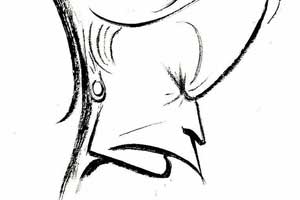British economist James Rockey suggests that self-identified liberals actually possess more conservative views on issues than their ideological affiliations would suggest. Andrew Sullivan points us to an academic working paper that surveyed some 280,000 people in 84 countries, including Hungary, Vietnam, and China, as well as major Western industrialized countries. One of the paper’s most perplexing findings:
It would seem that the better educated, if anything, are less accurate in how they perceive their ideology. Higher levels of education are associated with being less likely to believe oneself to be right-wing, whilst simultaneously associated with being in favour of increased inequality. This result contrasts with those for income: higher levels of income are associated with both believing oneself to be more right-wing as well as considering more inequality to be necessary.
So what’s going on here? In the US, for example, there are certainly pockets of wealthy self-identified liberals who are less inclined to support income redistribution—but who support liberals because they’re either willing to overlook some of their differences with the left on economic issues (given their views on social issues), or who ultimately decide it’s not worth being as selfish when it comes to actually casting a vote.
But I also suspect that this cognitive dissonance is tied to some of the developing nations that included in the survey. As they develop and industrialize, poorer nations often give rise to an educated elite that’s more likely to support a more open, if not necessarily democratic, system of governance—and accordingly identify with the more liberal end of the spectrum. At the same time, the embrace of a more open society often coincides with a more open, capitalistic marketplace—one that quickly results in greater income gaps, as well as a stronger feeling of individualistic entitlement.
While it doesn’t break down the results along these lines, Rockey’s paper offers at least one good illustration of this phenomenom: While men across the board identify more frequently as being right-wing than women, self-identified conservative men from rich OECD nations hold more conservative views on income inequality, while those from poorer nations have more liberal views on the issue. That doesn’t mean that concerns about income inequality don’t exist in developing nations, but they don’t seem as central to having a more liberal mindset, on the whole.
Other theories?
















